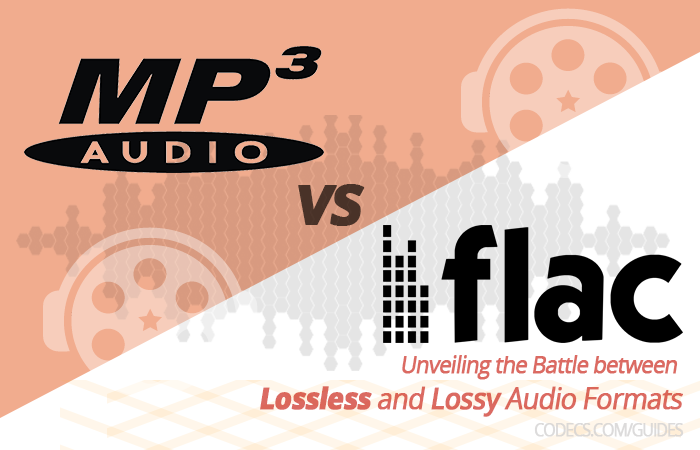In the world of digital music, two popular audio formats have dominated the landscape for decades: FLAC and MP3.
Both formats offer distinct advantages and cater to different needs, sparking an ongoing debate among audiophiles and casual listeners alike.
This article aims to delve into the differences between FLAC (Free Lossless Audio Codec) and MP3 (MPEG-1 Audio Layer 3), exploring the concept of lossless versus lossy audio compression.
Understanding Lossless and Lossy Audio Compression
Before diving into the FLAC vs. MP3 comparison, it's important to grasp the fundamental concepts of lossless and lossy audio compression.
What is lossless audio compression, and how does it preserve the quality of the original audio?
Lossless compression algorithms, such as FLAC, aim to reduce file sizes without compromising the quality of the original audio. FLAC achieves this by compressing the audio data in a manner that allows for perfect reconstruction of the original waveform.
Consequently, FLAC files maintain all the nuances, depth, and clarity of the source material. The resulting files are larger than their lossy counterparts but preserve the audio fidelity.
How does lossy audio compression work, and what compromises are made in terms of audio quality?
In contrast, lossy compression techniques, like MP3, employ algorithms that discard certain audio data to reduce file size significantly. This data reduction is achieved by eliminating perceptually irrelevant information, such as inaudible frequencies or subtle details that may go unnoticed by the average listener.
The trade-off for reduced file size is a minor compromise in audio quality, which may or may not be discernible depending on the listener's equipment and preferences.
Is FLAC better than MP3?
Now, let's compare FLAC and MP3 across various factors that influence the listening experience.
Sound Quality:
FLAC is renowned for its lossless nature, faithfully preserving the original audio quality. Audiophiles and music enthusiasts who value precise reproduction of sound, intricate details, and dynamic range prefer FLAC.
MP3, on the other hand, sacrifices some audio data, resulting in a slightly lower sound quality. However, for casual listeners or those who prioritize storage space, the difference may not be significant enough to justify the larger file sizes associated with FLAC.
File Size and Storage:
FLAC files are significantly larger than MP3 files due to their lossless nature. While this means a more accurate representation of the source material, it also requires more storage space.
MP3 files, being highly compressed, offer a smaller footprint and are more suitable for portable devices with limited storage capacity or streaming platforms where bandwidth and storage considerations are important.
Compatibility and Portability:
MP3 enjoys widespread compatibility across various devices, software, and platforms. It is supported by nearly all media players, portable devices, and operating systems, making it a versatile choice for audio consumption.
FLAC, on the other hand, is not as universally supported. While many media players and devices now offer FLAC compatibility, there may still be limitations, especially with older or less mainstream hardware.
Use Cases:
FLAC is ideal for preserving and archiving high-quality audio, making it popular among audiophiles, music producers, and DJs who require the utmost fidelity during production or audio mastering.
MP3, with its smaller file size and widespread support, is more suitable for casual listening, portable devices, online streaming, and situations where storage space is a concern.
When it comes to the FLAC vs. MP3 debate, as always, the choice depends on individual needs and preferences.
FLAC shines in terms of audio fidelity and offers an unmatched listening experience, making it the preferred format for those who prioritize sound quality above all else.
On the other hand, MP3's smaller file size, widespread compatibility, and convenience make it a popular choice for casual listening and situations where storage space is limited.
Ultimately, the decision boils down to the listener's priorities, equipment, and intended use.













How to Download HEVC Video Extension for Free
First I tried extension from manufacturer link in directly from app, but install button was grayed out. then I ...
Read More →Don't Open .xmpeg Files Before Reading This
A downloaded torrent contained a large xmpeg file. In addition there was an mp4 video file which claimed you ...
Read More →Is my PC able to play H.265 / HEVC media file...
Thanks, bro! Very helpfull
Read More →